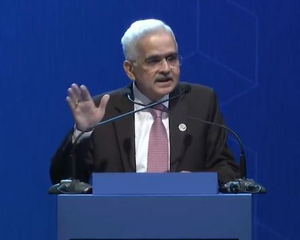South Korea launches nanosatellite for satellite constellation project

A South Korean nanosatellite was launched into orbit as part of the nation’s project to create a satellite constellation by 2027, officials said on Wednesday.
According to the Ministry of Science and ICT, the Earth observation satellite lifted off aboard Rocket Lab’s Electron rocket from a spaceport in Mahia, New Zealand, Yonhap news agency reported.
The satellite, named NEONSAT-1, was deployed into space at an altitude of 520 kilometres, about 50 minutes after the rocket’s launch.
NEONSAT stands for the New-space Earth Observation SATellite constellation for national safety.
Developed by the state-run Korea Advanced Institute of Science and Technology (KAIST) for mass production, NEONSAT-1 weighs less than 100 kilograms and has a resolution of 1 metre.
The satellite was the first among 11 nanosatellites to form a satellite constellation to monitor and take images of the Korean Peninsula and its surrounding regions.
South Korea plans to launch five more nanosatellites into space in June 2026 and five more in September 2027.
The launch was originally set to take place at 7:08 a.m. but was delayed due to a potential risk of colliding with another space vehicle and other issues, according to the ministry.
The launch project was named B.T.S., short for ‘The Beginning of the Swarm’, by the launch service provider Rocket Lab.





